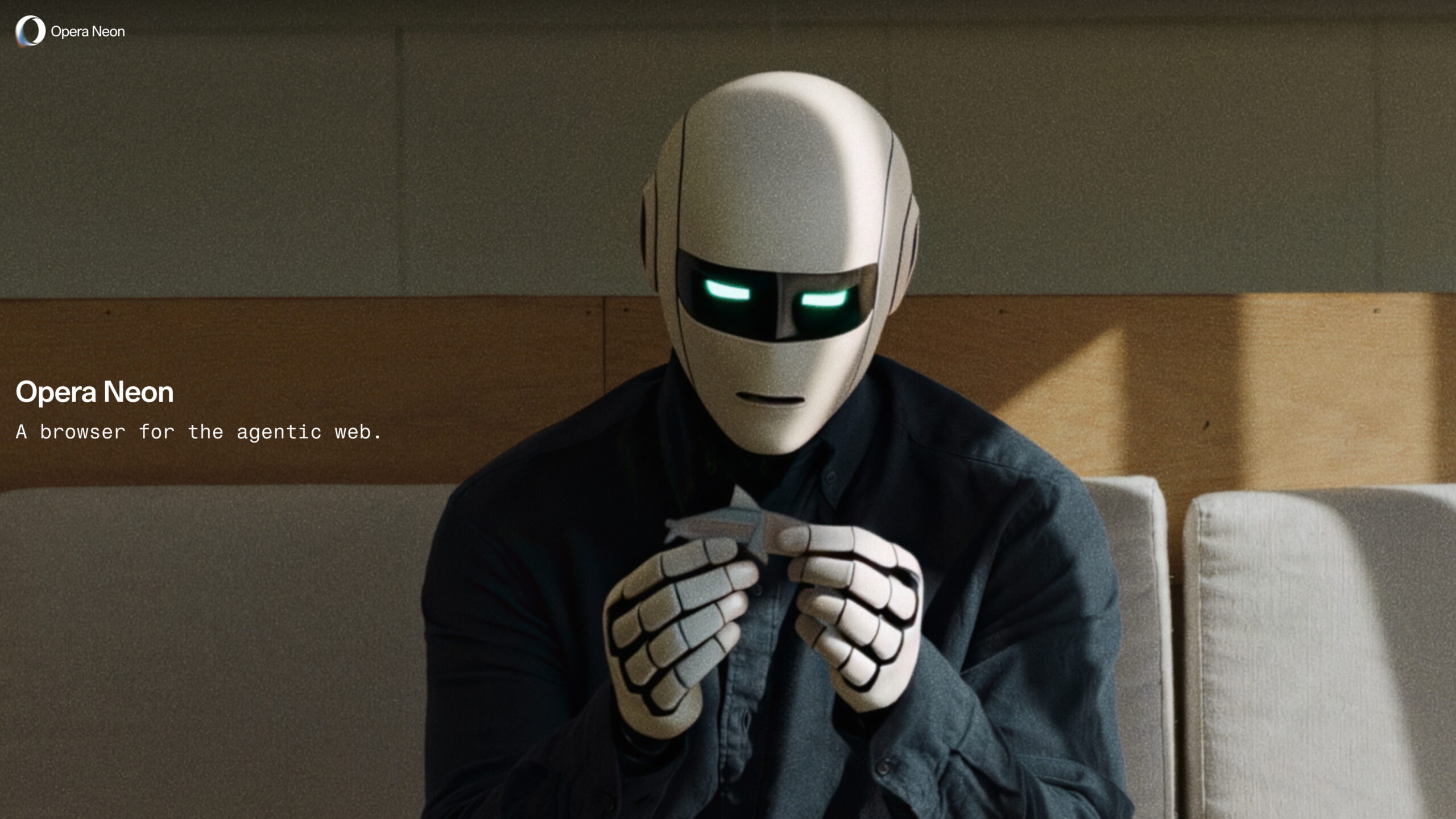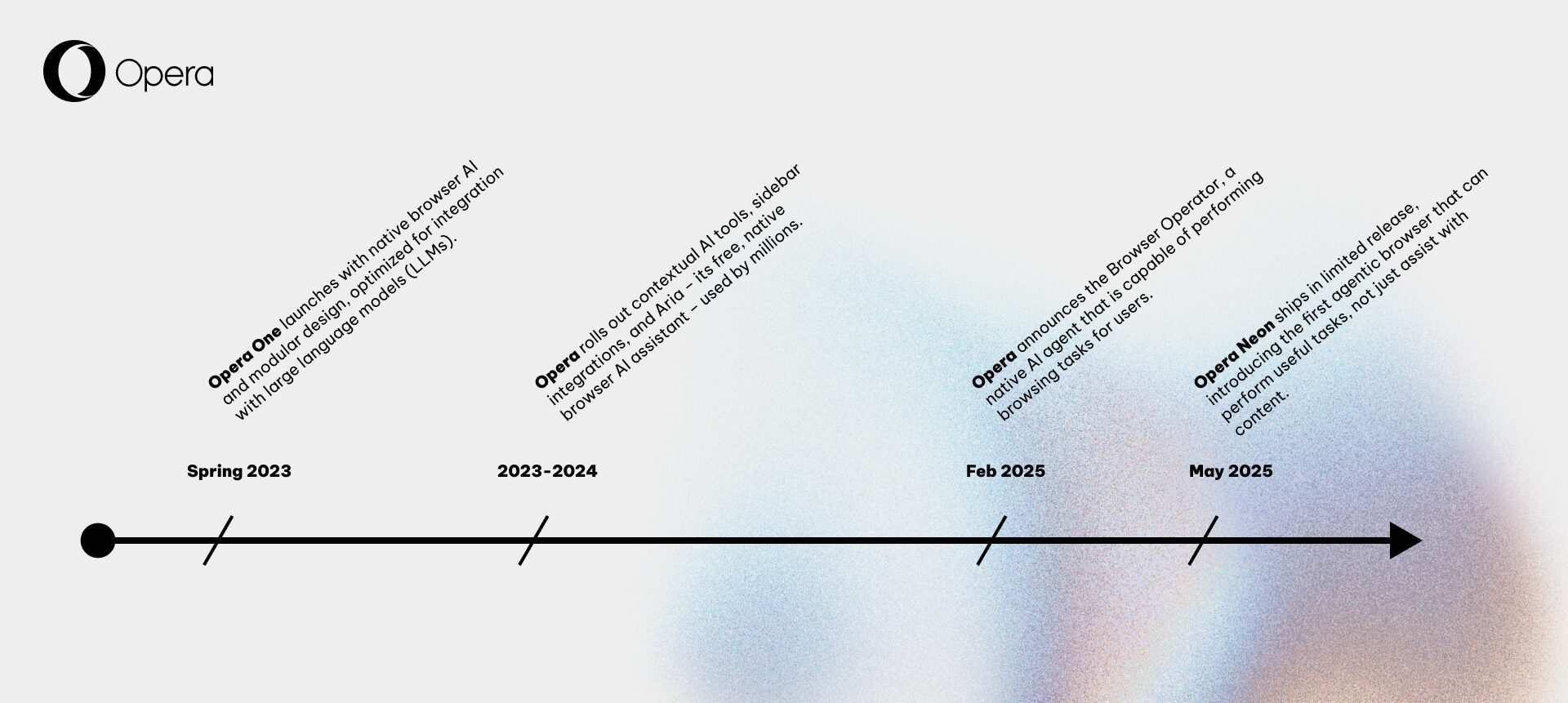
Oslo, Norway, July 30, 2025 – For 30 years, web browsers have been passive windows to the internet, leaving users to perform the actual work of navigating, copying, and pasting between countless tabs and apps. Opera [NASDAQ: OPRA], the web pioneer, is tackling this fundamental inefficiency with a new vision for browsing: the proactive, agentic browser that gets things done for the user. This vision is being brought to life with Opera Neon, the company’s first agentic browser, set to launch to the public later this year.
The need for this shift is hidden in plain sight. A knowledge worker switches between apps over 1,000 times a day, while consumers spend hours on multi-step tasks like booking a flight or managing finances. Opera believes agentic browsing represents the most significant evolution in human-computer interaction since the smartphone—a solution to an efficiency crisis that could automate up to 30% of work hours, creating billions in value.
“We’ve spent three decades optimizing browsing and retrieving information and that works well. But what people really need now is help with task completion,” said Krystian Kolondra, EVP at Opera. “The browser hasn’t evolved from a page viewer into a task executor, and we are fixing that. This is a story about the fundamental inefficiency of how humans interact with the web, and Opera Neon is our first step towards fixing this crucial issue and finding a better way.“
Unlike a traditional browser that passively waits for clicks, an agentic browser understands a user’s goal and then autonomously works to achieve it. This move from a reactive tool to a proactive partner is made possible by developments in AI that allow the browser to understand web page layouts, reason through multi-step processes, and execute actions reliably.
Consider this task from the world of IT project management:
“You tell your browser: ‘Check our Jira board for any P1 bugs still open for the mobile app release. Cross-reference with our Slack #engineering channel for recent updates, pull the latest user feedback from our support portal, and update the launch readiness document in Google Docs with the current status and risk assessment.'”
An agentic browser like Opera Neon would:
- Navigate and authenticate across Jira, Slack, the support portal, and Google Docs.
- Synthesize and reason through structured data, team chats, and user feedback to identify risks and dependencies.
- Take action by updating the launch document with a full summary, transforming an hour of manual work into a single command.
This journey toward an agentic browser is a natural progression for Opera, which began integrating AI into its flagship browser in 2023. After launching features like the Aria browser AI, used by millions, Opera introduced Neon in a limited release in May 2025 as the first browser capable of executing complex tasks.

“The shift to agentic browsing is a complete transformation of human-computer interaction,” added Kolondra. “It’s time for the browser to really start working for you, while you do something else.”
Opera Neon is set to launch publicly later this year. To experience the future of browsing, join the waitlist at operaneon.com.
About Opera
Opera is a user-centric and innovative software company focused on enabling the best possible internet browsing experience across all devices. Hundreds of millions use Opera web browsers for their unique and secure features on mobile phones and desktop computers. Founded in 1995 and headquartered in Oslo, Norway, Opera is a public company listed on the Nasdaq stock exchange under the ticker symbol OPRA. Download the Opera web browsers and other Opera products from opera.com. Learn more about Opera at investor.opera.com.
